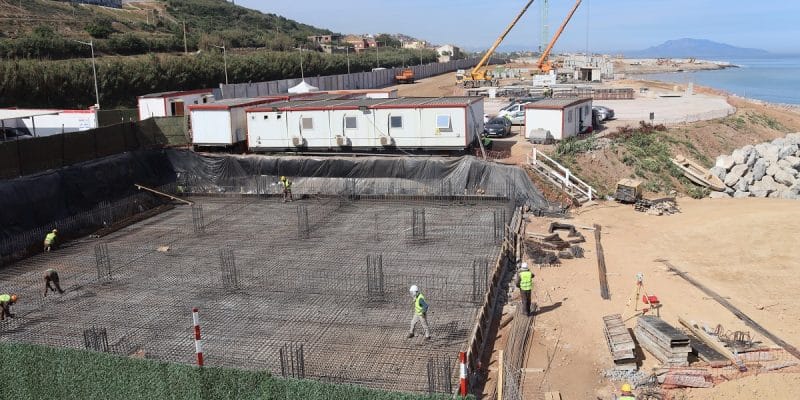President Abdelmadjid Tebboune has launchd the construction of The Cap Djinet seawater desalination plant in the wilaya of Boumerdès. The project is one of many that the president has started. Prior to the 61st anniversary of Algeria’s independence being observed. This was accomplished during a ceremony that several other significant Algerian figures attended.
The national corporation for large well works (GTP) and the national civil engineering and construction company (GCB) will construct the plant on a 16-hectare site. Ten seawater desalination units based on the reverse osmosis technique will be added by the two firms to the plant. However, Miah Cap Djinet, a division of AEC, will oversee the projects.
Also Read: Contracts awarded for development of Rhourde El Baguel oil field and related projects in Algeria
Benefits of the the Cap Djinet seawater desalination plant
According to Abdelmadjid, the plant, which will have a capacity of 300,000 m3, would increase the drinking water supply to 3 million people in Boumerdès and Algier. As well as two wilayas experiencing water shortages, partially owing to drought. The plant will be delivered in December 2024.
Abdelmadjid Tebboune also laid the foundation for the Fouka 2 saltwater desalination plant in the wilaya of Tipaza on Wednesday. The national firm Cosider Canalisations, another AEC affiliate, will construct this second plant on a 7-hectare location. It will be the same size as the Cap Djinet seawater desalination plant. It aims to provide safe drinking water to 3 million people living in the western Tipaza wilaya and a portion of the Blida wilaya by 2025.
These two facilities are a part of a group of five seawater desalination facilities that will be constructed in various wilayas. Oran, El Tarf, and Bejaa are the other three wilayas. Each facility will have a daily desalination capacity of 300,000 m3, totaling 1.5 million m3 for all the plants put together. As a result, the percentage of desalination in Algeria’s drinking water production will rise from 17% to 42%.

Leave a Reply